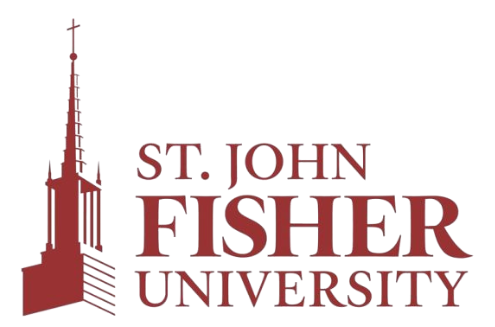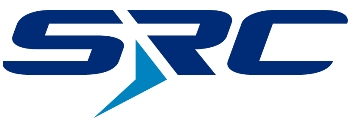GENIUS Olympiad promotes a global understanding of environmental issues and the achievement of sustainability through basic science, arts, short film, coding, robotics, speech, engineering, design, and business development. GENIUS Olympiad provides challenges and opportunities for secondary school students, to instill in them the skills and knowledge needed to be the citizens, leaders, scientists, artists, writers, engineers, and policy makers of the future—agents who will promote and contribute to greater environmental sustainability throughout their lives. GENIUS is also an abbreviation of Global Environmental Issues and Us.
GENIUS Olympiad focuses on all aspects of global environmental issues with the following goals:
- To enable high school students around the world to cope with environmental problems, and to elicit their abilities to produce solutions.
- To inspire high school students to contribute to the protection and improvement of the environment.
- To equip young generations with environmental consciousness.
- To provide a forum for youth from around the world to come together and share ideas.
- To inform the public about global environmental problems.
A GENIUS has:
- affection for all humanity
- wisdom in all circumstances
- a deep sense of responsibility for society and the world
- dedication to deeply held values, acting accordingly with passion
Why Participate?
- Global Recognition: Top projects from each participating country will be invited to the USA finals, where you can compete with talented peers from around the globe.
- Diverse Categories: Whether you’re passionate about science, art, robotics, coding, business, short film, music, or speech, there’s a place for your skills and creativity in our competition.
- Networking Opportunities: Connect with like-minded students, mentors, and industry professionals who share your passion for sustainability and innovation.
- Skill Development: Gain valuable experience in project management, research, and public speaking that will enhance your academic and professional journey.
- College Career: Attending a global competition increases your chance of getting into top universities and receiving scholarship opportunities.
How to Participate?
Following table describes the International GENIUS Olympiad application and event process.
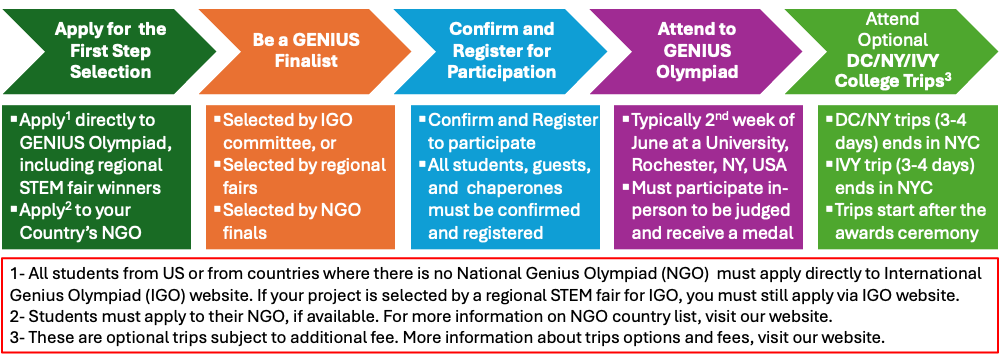
We would like to thank all participants who provided constructive feedback in order to make our organization better in the years to come. We took the feedback to heart and will make several changes in the coming year. Below are the quantitative and qualitative results of our GENIUS Olympiad surveys.
TESTIMONIALS
- US: I love the experience of Genius Olympiad. I feel this event is not a simple science fair. I feel like it is a learning experience and world-class cultural exchange.
- International: Fulfilling experience. Enjoyed meeting new people and exploring the projects. Such an awesome way to promote the love of science and art for the enhancement of the environment.
- US: This was an excellent event. It was an honor to be invited to participate and to be involved.
- International: It was a great experience. I really enjoyed it.
- US: It was an amazing experience for both my student and myself.
- International: I really liked the organization of the whole competition. I liked the trips and staying on campus. it was fun and the environment was great!
- US: Awesome! I loved the performances by the students and enjoyed seeing and experiencing the different cultures during the international fair.
- International: The whole experience was wonderful! All the students, supervisors, and directors were very kind and helpful. The food was great, and the activities such as Niagara Falls and the Mall during the Olympiad were fun!
- US: Overall, the conference is very nice and promotes a lot of connection between students of different countries.
- International: Everything was awesome! Overall, I loved the Genius experience. I met amazing people, learn new things. It couldn't have been any better.
- US: It was a wonderful event overall. We appreciate all the hard work that was put into this event. We appreciate the opportunity to visit the Niagara Falls. Great event and wonderfully organized. Thank you all.
- International: I loved Genius Olympiad. It was not just a excellent science fair, but also a great experience!
- US: Students were having a wonderful time. International students may have been surprised how much the US people enjoyed seeing them and wanting to get picture with everyone
- US:: One student has attended both years, and continues to talk about the wonderful time and experience she had. You do a great job balancing the fair and enjoyment of the participants.
- International: It was very nice experience to be in such an environment
- US: The food was delicious. Please, thanks the chefs for me. Because of them not once during the 5 days I was there, did I leave the cafeteria with an empty stomach.
- US: The food was DELICIOUS. I don't think I've ever tasted eggs yummier than this. Thanks to the chefs
- International: The meals were planned to meet the different cultures that would be attending.
GENIUS 2025 Facts: GENIUS 2025 AWARDEES
- 2723 projects were submitted, 832 projects were accepted (30.1% acceptance rate)
- The number of projects submitted from the United States was 630 (21.8% of submitted projects)
- The country where the most number of projects were submitted: Ukraine with 586 projects, South Korea with 565 projects, Kyrgyzstan with 215, Thailand with 68 projects, and China with 58 projects.
- The number of countries where the projects were submitted: 66
- The number of US States where the projects were submitted: 34
- The number of accepted Science projects: 498 out of 1698 submissions (29.3% acceptance rate)
- The number of accepted Art projects: 109 out of 448 submissions (24.3% acceptance rate)
- The number of accepted Short Film projects: 34 out of 102 submissions (33.3% acceptance rate)
- The number of accepted Speech projects: 31 out of 98 submissions (31.6% acceptance rate)
- The number of accepted Robotics projects: 49 out of 110 submissions (44.5% acceptance rate)
- The number of accepted Music projects: 10 out of 25 submissions (40% acceptance rate)
- The number of accepted Business projects: 68 out of 242 submissions (28.1% acceptance rate)
GENIUS 2024 Facts: GENIUS 2024 AWARDEES
- 2452 projects were submitted, 727 projects were accepted (29.6% acceptance rate)
- The number of projects submitted from the United States was 637 (24.2% of submitted projects)
- The country where the most number of projects were submitted: Ukraine with 786 projects, South Korea with 335 projects, Kyrgyzstan with 145, China with 62 projects, Vietnam with 36 projects, and Indonesia with 32 projects.
- The number of countries where the projects were submitted: 65
- The number of US States where the projects were submitted: 33
- The number of accepted Science projects: 367 out of 1014 submissions (36% acceptance rate)
- The number of accepted Art projects: 165 out of 578 submissions (29% acceptance rate)
- The number of accepted Short Film projects: 32 out of 138 submissions (23% acceptance rate)
- The number of accepted Creative Writing projects: 63 out of 457 submissions (14% acceptance rate)
- The number of accepted Robotics projects: 38 out of 63 submissions (60% acceptance rate)
- The number of accepted Music projects: 13 out of 62 submissions (21% acceptance rate)
- The number of accepted Business projects: 49 out of 140 submissions (35% acceptance rate)
GENIUS 2023 Facts: GENIUS 2023 AWARDEES
- 1453 projects were submitted, 726 projects were accepted (49.9% acceptance rate)
- The number of projects submitted from the United States was 467 (32% of submitted projects)
- The country where the most number of projects were submitted: South Korea with 301 projects, Ukraine with 60 projects, Turkey with 44, China with 42 projects, Indonesia with 36 projects, and Angola with 32 projects.
- The number of countries where the projects were submitted: 63
- The number of US States where the projects were submitted: 31
- The number of accepted Science projects: 349 out of 672 submissions (52% acceptance rate)
- The number of accepted Art projects: 168 out of 328 submissions (51% acceptance rate)
- The number of accepted Short Film projects: 32 out of 66 submissions (49% acceptance rate)
- The number of accepted Creative Writing projects: 83 out of 203 submissions (41% acceptance rate)
- The number of accepted Robotics projects: 33 out of 37 submissions (89% acceptance rate)
- The number of accepted Music projects: 9 out of 19 submissions (47% acceptance rate)
- The number of accepted Business projects: 52 out of 128 submissions (41% acceptance rate)
GENIUS 2022 Facts: GENIUS 2022 AWARDEES
- 1609 projects were submitted, 819 projects were accepted (50.9% acceptance rate)
- The number of projects submitted from the United States was 659 (41% of submitted projects)
- The country where the most number of projects were submitted: South Korea with 259 projects, Ukraine with 89 projects, VietNam with 80, Indonesia with 49 projects, and China with 45 projects) The high school which submitted the most projects are Well Spring Saigon School, VietNaM (35 projects), Jubilee School, Jordan (33 projects), Pelham Memorial High School, New York, USA (29 Projects),OrangeCube Institute, South Korea (27 Projects), Kharisma Bangsa School, Indonesia (25 Projects), New Rochelle High School, New York USA, (25 Projects), Yahya Kemal Skopje, North Macedonia, (22 projects).
- The number of countries where the projects were submitted: 57
- The number of US States where the projects were submitted: 35
- The number of accepted Science projects: 441 out of 841 submissions (52% acceptance rate)
- The number of accepted Art projects: 144 out of 322 submissions (45% acceptance rate)
- The number of accepted Short Film projects: 32 out of 54 submissions (59% acceptance rate)
- The number of accepted Creative Writing projects: 121 out of 233 submissions (52% acceptance rate)
- The number of accepted Music projects: 13 out of 25 submissions (52% acceptance rate)
- The number of accepted Business projects: 68 out of 134 submissions (50% acceptance rate)
GENIUS 2020-2021 Facts: GENIUS 2021 AWARDEES
- 2,481 projects were submitted, 1,245 projects were accepted (50% acceptance rate)
- The number of projects submitted from the United States was 879 (35% of submitted projects)
- The country where the most number of projects were submitted: South Korea with 261 projects, Ukraine with 115 projects, Kyrgyzstan with 112, Tajikistan with 92 projects, and Jordan with 75 projects)
- The high school which submitted the most projects are Junior Academy of Science, Ukraine (82 projects), Jubille Schools, Jordan (50 projects),Wellspring Saigon International Bilingual School, Viet Nam (44 Projects), Seoul International School, South Korea (42 Projects), Lyceum for Gifted Students, Tajikistan (38 Projects),Yahya Kemal College, Macedonia (34 Projects), Pawling High Schools, U.S. NY, (31 projects), Complixo Escolar Privado International, Angola (30 projects).
- The number of countries where the projects were submitted: 85
- The number of US States where the projects were submitted: 42
- The number of accepted Science projects: 679 out of 1,311 submissions (51% acceptance rate)
- The number of accepted Art projects: 270 out of 567 submissions (48% acceptance rate)
- The number of accepted Short Film projects: 60 out of 127 submissions (47% acceptance rate)
- The number of accepted Creative Writing projects: 136 out of 287 submissions (47% acceptance rate)
- The number of accepted Robotics projects: Will not be held this year.
- The number of accepted Music projects: 31 out of 56 submissions (55% acceptance rate)
- The number of accepted Business projects: 68 out of 134 submissions (50% acceptance rate)
GENIUS 2019 Facts:
- 1,698 projects were submitted, 789 projects were accepted (53% acceptance rate)
- The number of projects submitted from the United States was 403 (27% of submitted projects)
- The country where the most number of projects were submitted: Kyrgyzstan with 117 projects (Tajikistan 56 projects, South Korea 53 projects, Jordan 52 projects, Indonesia 51 projects)
- The high school which submitted the most projects are Jubilee Schools, Jordan (45 projects), Yahya Kemal Schools, Macedonia (40 Projects), Yorktown High School, US (31 projects) Bishkek Aichurol School, Kyrgyzstan (51 projects).
- The number of countries where projects were submitted: 78
- The number of US States where projects were submitted: 39
- The number of accepted Science projects: 420 out of 842 submissions (50% acceptance rate)
- The number of accepted Art projects: 136 out of 247 submissions (54% acceptance rate)
- The number of accepted Short Film projects: 36 out of 77 submissions (49% acceptance rate)
- The number of accepted Creative Writing projects: 68 out of 123 submissions (54% acceptance rate)
- The number of accepted Robotics projects: 42 out of 69 submissions (60% acceptance rate)
- The number of accepted Music projects: 27 out of 42 submissions (64% acceptance rate)
- The number of accepted Business projects: 30 out of 63 submissions (48% acceptance rate)
- Total number of participants was 1512
GENIUS 2018 Facts:
- 1,657 projects were submitted, 729 projects were accepted (44% acceptance rate)
- The number of projects submitted from the United States was 386 (23% of submitted projects)
- The country where the most number of projects were submitted: Kyrgyzstan with 167 projects (Indonesia 83 projects, Macedonia (64 projects), Kosovo (63 projects), Korea (53 projects)
- The high school which submitted the most projects are Yahya Kemal School, Macedonia (61 projects), Kharisma Bangsa School, Indonesia (39 Projects), Jubilee School, Jordan (36 projects), Horizon International School, Viet Nam (31 projects), Yorktown School, NY, USA (30 Projects)
- The number of countries where projects were submitted: 70
- The number of US States where projects were submitted: 34
- The number of accepted Science projects: 406 out of 897 submissions (45% acceptance rate)
- The number of accepted Art projects: 109 out of 297 submissions (37% acceptance rate)
- The number of accepted Short Film projects: 48 out of 107 submissions (45% acceptance rate)
- The number of accepted Creative Writing projects: 76 out of 188 submissions (41% acceptance rate)
- The number of accepted Robotics projects: 46 out of 82 submissions (56% acceptance rate)
- The number of accepted Music projects: 26 out of 39 submissions (66% acceptance rate)
- The number of accepted Business projects: 18 out of 47 submissions (38% acceptance rate)
- The number of participants: 1348
GENIUS 2017 Facts:
- 1,409 projects were submitted, 597 projects were accepted (42% acceptance rate)
- The number of projects submitted from the United States was 373 (26% of submitted projects)
- The country where the most number of projects were submitted: Kyrgyzstan with 83 projects
- The high school which submitted the most projects are Bishkek Aichurok School, Kyrgyzstan (32 projects), Yorktown, NY, USA (26 Projects), Feza Girls High School, Tanzania (25 projects)
- The number of countries where projects were submitted: 73
- The number of US States where projects were submitted: 40
- The number of accepted Science projects: 365 out of 801 submissions (46% acceptance rate)
- The number of accepted Art projects: 103 out of 255 submissions (40% acceptance rate)
- The number of accepted Creative Writing projects: 52 out of 178 submissions (29% acceptance rate)
- The number of accepted Robotics projects: 31 out of 56 submissions (55% acceptance rate)
- The number of accepted Music projects: 22 out of 54 submissions (41% acceptance rate)
- The number of accepted Business projects: 24 out of 65 submissions (37% acceptance rate)
- GENIUS hosted 1057 participants.
GENIUS Olympiad 2016 FACTS:
- 1,354 projects submitted, 515 projects were accepted (38% selectivity)
- The number of projects submitted from United States was 294 (22% of all projects)
- The high school which submitted the most projects are Istanbul Kartal Doga School (20 projects), Istanbul Ulus Jewish School (20 Projects), Colegio Esparanca Internacional, Angola (20 projects)
- The number of countries from which projects were submitted: 65
- The number of US States from which projects were submitted: 32
- The number of Science projects which were accepted: 298 out of 729 submissions
- The number of Art projects which were accepted: 111 out of 286 submissions
- The number of Creative Writing projects which were accepted: 42 out of 159 submissions
- The number of Design projects which were accepted: 29 out of 87 submissions
- The number of Music projects which were accepted: 16 out of 39 submissions
- The number of Business projects which were accepted: 19 out of 53 submissions
- GENIUS hosted 986 participants.
GENIUS Olympiad 2015 FACTS:
- 1,171 projects submitted, 401 projects were accepted (34% selectivity)
- The number of projects submitted from United States was 262 (22% of all projects)
- The high school which submitted the most projects is Istanbul Okyanus High Schools, Turkey (44 Projects)
- The number of countries from which projects were submitted: 69 (We accepted finalists from 65 countries).
- The number of US States from which projects were submitted: 34 (We accepted finalists from 33 US states).
- The number of Science projects which were accepted: 253 out of 625 submissions (40% Selectivity)
- The number of Art projects which were accepted: 68 out of 298 submissions (23% selectivity)
- The number of Creative Writing projects which were accepted: 38 out of 125 submissions (30% selectivity)
- The number of Design projects which were accepted:20 out of 70 submissions (28% selectivity)
- The number of Music projects which were accepted: 13 out of 22 submissions (59% selectivity)
- The number of Business projects which were accepted: 9 out of 26 submissions (35% selectivity)
- GENIUS hosted 920 participants.
GENIUS Olympiad 2014 FACTS:
- 842 projects were submitted and 328 projects were accepted (39% selectivity)
- The high school with the most project submissions was Istanbul Okyanus High Schools, Turkey: 22 Projects.
- The number of countries from which projects were submitted: 57 (We accepted finalists from 55 countries).
- The number of US States from which projects were submitted: 36 (We accepted finalists from 33 US states).
- The number of Science projects which were accepted: 217 out of 502 submissions (43%)
- The number of Art projects which were accepted: 57 out of 169 submissions (34%)
- The number of Creative Writing projects which were accepted: 34 out of 111 submissions (31%)
- The number of Design projects which were accepted: 13 out of 47 submissions (28%)
- The number of Music projects which were accepted: 7 out of 13 submissions (54%, first year promotion :))
GENIUS Olympiad 2013 FACTS:
- 769 projects were submitted: 414 science, 215 art, 114 creative writing, 19 design, 2 city
- 58 countries submitted a project: total 601 international projects
- 38 states submitted projects: total 168 US national projects
- 325 projects were accepted: 232 science, 58 art, 26 creative writing, 7 design, 2 city
- 427 students were accepted: 231 female (54%) and 196 male (46%)
- 42% overall acceptance rate
- 385 students and 149 supervisors participated
- 282 projects were presented: 214 science, 38 art, 26 creative writing, 6 design
- 193 projects from 53 countries and 89 projects from 30 states were represented
- 65 judges volunteered to evaluate the projects
GENIUS Olympiad 2012 FACTS:
- 663 projects were submitted: 429 science, 134 art, 81 creative writing, 19 design
- 52 countries submitted a project: total 436 international projects
- 37 states submitted projects: total 227 US national projects
- 253 projects were accepted: 185 science, 40 art, 18 creative writing, 10 design
- 381 students were accepted: 203 female (53%) and 178 male (47%)
- 35% overall acceptance rate,
- 293 students and 139 supervisors participated in,
- 217 projects were presented: 156 science, 36 art, 15 creative writing, 10 design
- 151 projects from 49 countries and 66 projects from 30 states were represented
- 63 judges volunteered to evaluate the projects
GENIUS Olympiad 2011 FACTS:
- 1066 students applied
- 647 projects were submitted: 558 science and 89 art
- 46 countries submitted a project
- 35 states submitted projects
- 195 projects were accepted: 165 science and 30 art
- 30% overall acceptance rate
- 212 students and 118 supervisor participated, with 23 volunteers
- 142 projects were presented: 118 science and 24 art
- 33 countries and 30 states were represented
- 47 judge volunteered to evaluate the projects
-
GENIUS Olympiad Founded
647 Project Applications from 46 Countries
230 Participants Hosted by SUNY Oswego
Science & Art Categories
2011
2011
-
Exceeded 500 Participants
769 Project Applications from 58 Countries
534 Participants Hosted by SUNY Oswego
Creative Writing & Design Categories Added
2013
2013
-
Exceeded 1000 Projects
1171 Project Applications from 69 Countries
920 Participants Hosted by SUNY Oswego
Business & Music Categories Added
2015
2015
-
Exceeded 1000 Participants
1409 Project Applications from 73 Countries
1057 Participants Hosted by SUNY Oswego
Robotics Category Added
2017
2017
-
Exceeded 1500 Participants
1698 Project Applications from 78 Countries
1512 Participants Hosted by SUNY Oswego
Short Film Category added
2019
2019
-
Celebrating 10 Years
Due to Covid-19 GENIUS Olympiad was held virtually with more than 1800 projects and over 1500 participants
2020
2020
-
New Host - RIT
Resumes in-person GENIUS Olympiad after Covid-19 pandemic
Rochester Institute of Technology, as a New Host, Welcomes GENIUS Olympiad
2019
2023
-
National GENIUS Olympiads
Expanding National GENIUS Olympiads to be organized in select countries as the first step.
GENIUS Olympiad Ukraine was the first National GENIUS Olympiad, which expanded to include 12 countries this year
2019
2025
If you would like to become a GENIUS Olympiad-affiliated fair in order to provide your participants with the opportunity to interact with other students from all over the world, please follow one of the following three categories that your fair falls into. If you are not sure, please contact us at [email protected].
Affiliated U.S. Regional Fairs
All U.S. ISEF affiliated regional fairs or U.S. regional fairs with 75 or more high school projects are considered GENIUS affiliated. Please create a FAIR account with us at apply.geniusolympiad.org. Provide your fairs main contact email, website, and number of projects at high school level on average. Once you are approved, your account will have documents (student certificate, student guide, fair guide). In addition, you will be allocated number of affilated projects based on your total number of high school projects. Fair accounts are not for project submissions. When a student applies to us and selects your fair, you will receive an email to confirm that the project was selected by your fair to attend GENIUS Olympiad. For project application, you need to create project registration account. These projects must be registered by the deadline (specific for U.S. Regional Fairs and usually around April 15th) and must pay all fees (application and registration) in order to be considered for GENIUS Olympiad. For all rules, deadlines, and application process, please visit the respective pages on this website.
National GENIUS Olympiad Fairs
GENIUS Olympiad Nationals are held at individual countries by third parties or governmental organizations under a licensing agreement. GENIUS Olympiad Nationals are the first step to be a finalist at GENIUS Olympiad in the country it is organized. All projects who would like to participate in GENIUS Olympiad must apply to GENIUS Olympiad Nationals in their country.
All prior affiliations in the countries where National GENIUS Olympiad is Organized are considered cancelled. International students who would like to apply for International GENIUS Olympiad must apply through their country’s National GENIUS Olympiad, if there is one; all others may apply directly to International GENIUS Olympias as their first step selection.
If you would like to organize GENIUS Olympiad Nationals in your country or state as in its current structure and format under our licensing agreement, please fill out this form
If you are from one of these countries, please apply through their websites if the category is organized in your country, otherwise proceed through our website.
- GENIUS Olympiad Ukraine, website: ukraine.geniusolympiad.org
- GENIUS Olympiad Australia
- GENIUS Olympiad Bangladesh
- GENIUS Olympiad Botswana
- GENIUS Olympiad China
- GENIUS Olympiad Egypt
- GENIUS Olympiad Greece
- GENIUS Olympiad Indonesia
- GENIUS Olympiad Iraq
- GENIUS Olympiad Kazakhstan
- GENIUS Olympiad Pakistan
- GENIUS Olympiad Poland
- GENIUS Olympiad South Korea
- GENIUS Olympiad Tunisia
- GENIUS Olympiad United Kingdom
- GENIUS Olympiad Zimbabwe
Affiliated International Fairs
All ISEF affiliated international fairs are considered GENIUS affiliated, unless there is a National GENIUS Olympiad is organized in that country. In order to be affiliated: your fair must host 75 or more projects and must be regional (includes multiple schools). We do not accept school based fairs. Please create a FAIR account with us at apply.geniusolympiad.org. Provide your fairs main contact email, website, and number of projects at high school level on average. Once you are approved, your account will have documents (student certificate, student guide, fair guide). In addition, you will be allocated number of affilated projects based on your total number of high school projects. Fair accounts are not for project submissions. When a student applies to us and selects your fair, you will receive an email to confirm that the project was selected by your fair to attend GENIUS Olympiad. For project application, you need to create project registration account. These projects must be registered by the deadline (General application Deadline, usually around March 1st) and must pay all fees (application and registration) in order to be considered for GENIUS Olympiad. For all rules, deadlines, and application process, please visit the respective pages on this website.
Terra Science and Education is the proud founder and organizer of GENIUS Olympiad. Terra Science and Education was founded in 2011 as a 501(c)3 non-profit organization for the improvement of K–16 education through consulting, scholarships, research, new program development, and public forums.
Mission
Terra Science and Education is dedicated to developing innovative young minds through project-based learning.
Our Key Initiatives:
We are committed to supporting those engaged in project-based learning with a focus on environmental and STEM education and constantly seek new programs and partnerships to enhance the educational experiences for students. Terra welcomes the opportunity to collaborate and tailor programming to meet your team’s needs.
- GENIUS Olympiad: A global competition where high school students from over 70 countries and 35 U.S. states come together to tackle environmental challenges through diverse disciplines such as art, business, coding, music, robotics, short film, speech, and STEM.
- ISEF Affliated STEM Fairs Program: Terra sponsors and manages six ISEF affiliated regional stem fairs across New York City, Northern New Jersey, Buffalo, Potsdam, Rochester, and Duchess County, providing students with platforms to showcase their innovations.
- Terra Journals: Open-access and peer-reviewed, our journals include the International Journal of High School Research, International Journal of Undergraduate Research, and International Journal of educational practice and leadership—providing valuable publishing opportunities for students and researchers.
- Gerace Research Partnership: In collaboration with the Gerace Research Center of the University of the Bahamas, we offer immersive, hands-on marine ecology experiences for all US or international educators and students in San Salvador, Bahamas.
- ACASU Accreditation: Terra recently launched the American Council for Accreditation of Schools and Universities (ACASU), which supports schools abroad in aligning with U.S. higher education standards by guiding them through a customized accreditation process.
- Terra Educational Data (TED) Solutions: Our unique data management software tool helps educators manage data efficiently by streamlining processes such as student tracking, assessment, intervention, and registration, all aimed at increasing student success.
- Terra Grants: Capacity Building Grants provide $1,000–$5,000 to K-12 schools and nonprofits for sustainable projects such as robotics clubs, lab equipment, and technology upgrades only for selected non-profits and schools within specific counties of New York State.
- Terra Scholarship: Scholarship programs include renewable College Achievers awards of up to $1,000 per year as well as automatic readiness and achievement awards based on Regents and New York State test performance only for SANY students.
- Invention Convention New York Affiliate: In collabration with The Henry Ford foundation Terra will provide professional development to teachers empowering K-12 students across New York to become innovators and problem-solvers. Through hands-on invention education, students identify real-world problems, design creative solutions, and showcase their inventions at local and statewide events, with the opportunity to advance to national and global competitions.
At Terra, we are passionate about empowering the next generation of leaders and innovators through project based learning in STEM. We are excited to collaborate with you to develop programs that inspire, challenge, and prepare students for success using extracurricular activities. We look forward to working together to achieve meaningful educational outcomes.
Terra Science and Education is pleased to be a partner in the international STEM Learning Ecosystem network. STEM Learning Ecosystems bring together various STEM educational stakeholders to collaborate with each other to improve STEM instruction in their communities for students and lifelong learners in a mutually beneficial relationship which helps to stimulate local economies. STEM Learning Ecosystems include members such as school districts, colleges and universities, museums, educational nonprofits, businesses, and other educational stakeholders. Partners use their shared resources to develop STEM programs in their local areas.
For more information about the organizer, please visit Terra Science and Education.
Transparency:
Terra received Platinum Level Transparency Seal from GuideStar, a national non-profit data source to help givers find effective charities. The Platinum Seal puts Terra Science and Education in the top 0.1% of non-profits in terms of transparency. Terra consistently keeps its general management expenses (MGE) below 10%, which is below the national average for nonprofits (within 14-18% range over the years).
GENIUS Olympiad is hosted at St. John Fisher University campus (see the picture and map below for exact location), located in Rochester, New York, USA. Participants will have safe and fun experience at SJF, which is one of the leading universities in design, engineering, arts, and more. For more information about SJF University, please scroll down.
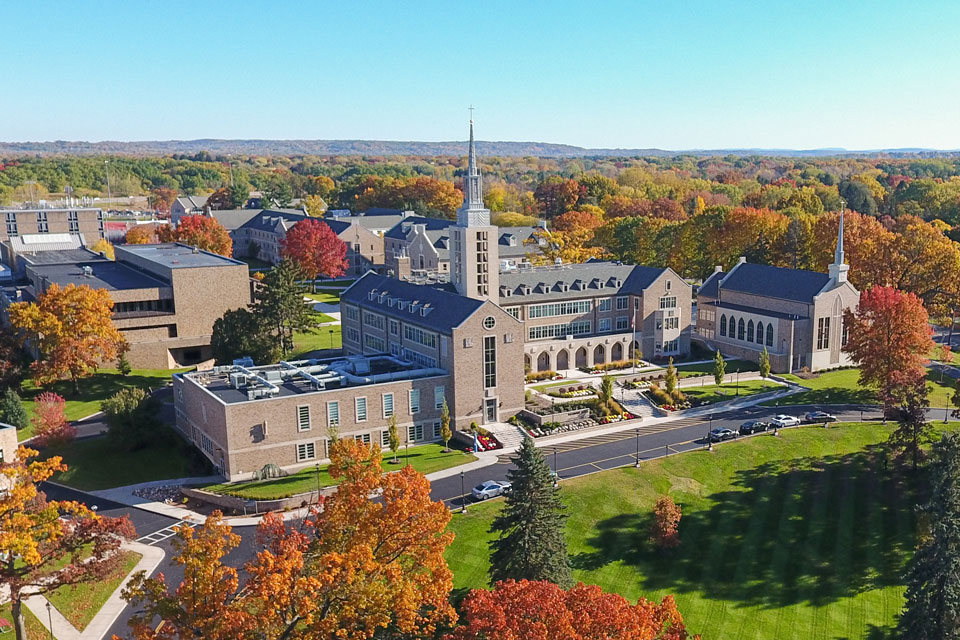
Airport: The nearest major transportation center is Greater Rochester Airport, which is 10 minutes away from the campus. GENIUS Olympiad will have scheduled pick-up/drop services from this airport (please check schedule or finalist guide for further information).
Participants arriving at any location other than Greater Rochester Airport must arrange their own transportation to SJF campus. Those who will attend optional GENIUS trips after the Olympiad can register to be picked at JFK airport in New York City if they are dropped at the same location after the trips (please read finalist guide/trips for further information about this option).
BY CAR, ROCHESTER IS:
90 minutes to Syracuse
80 minutes to Niagara Falls/Buffalo
3 hours to Toronto, Canada
6 hours to New York City (JFK), Boston, or Philadelphia
7 hours to Washington D.C.
For more information about SJF Campus and programs, visit: https://www.sjf.edu
St. John Fisher University
Fisher emphasizes the liberal arts, offering programs in traditional academic disciplines as well as more directly career-oriented fields.
Experiential learning and service-learning are central to all of Fisher’s 37 academic majors offered at the undergraduate level as well as many of its graduate programs. Students have countless chances throughout their years at the University to pursue internships and other networking opportunities as well as unique study abroad experiences.
Fisher students find everything they need to shape their future: a lively, inspiring, and welcoming campus community; the foundation of a liberal arts education that touches every part of their life; and the guidance of faculty whose expertise sheds light on students’ chosen fields. At Fisher, they find goodness, discipline, and knowledge.
The University is composed of five schools: the School of Arts and Sciences; the School of Business; the Ralph C. Wilson, Jr. School of Education; the Wegmans School of Nursing; and the Wegmans School of Pharmacy. Each School is accredited by regional, national, and/or international accrediting bodies. Learn more about accreditation.
Fisher offers 40+ undergraduate majors in the humanities, social sciences, natural sciences, business, education, and nursing, as well as several pre-professional programs. The University also offers a variety of master’s and doctoral programs; and several fully online programs.
The student-to-faculty ratio of 11 to 1 fosters a culture where students are known and respected. Learn more about the value of a Fisher education.
According to U.S. News & World Report, SJF is:
Ranked 192nd in the “National Universities” category
Ranked 31st in the nursing graduate programs (2024)
Ranked 88th in the online business MBA programs (2024)
Ranked 93rd in the online nursing graduate programs (2024)
Ranked 49th among “best value schools” (2024)
According to Princeton Review, SJF is:
Among the 150 best colleges in the Northeast (2025)”
According to College of Distinction:
For 10 consecutive years, St. John Fisher University has earned recognition as a College of Distinction, a prestigious designation awarded to schools whose commitment to engaged, experiential education sets them apart.
Dining & Campus Awards:
For the eighth consecutive year, St. John Fisher University’s Fisher Dining Services has maintained the No. 1 spot as the Best College Food in New York, according to Niche.com’s 2026 rankings. Fisher’s residence halls also earned the No. 1 ranking for Best College Dorms in New York.
At the national level, Fisher Dining Services maintained its Top 10 position, earning the No. 6 Spot as the Best College Food in America. Across the state, the University enjoyed several Top 10 accolades, including No. 3 for Best College Campuses.
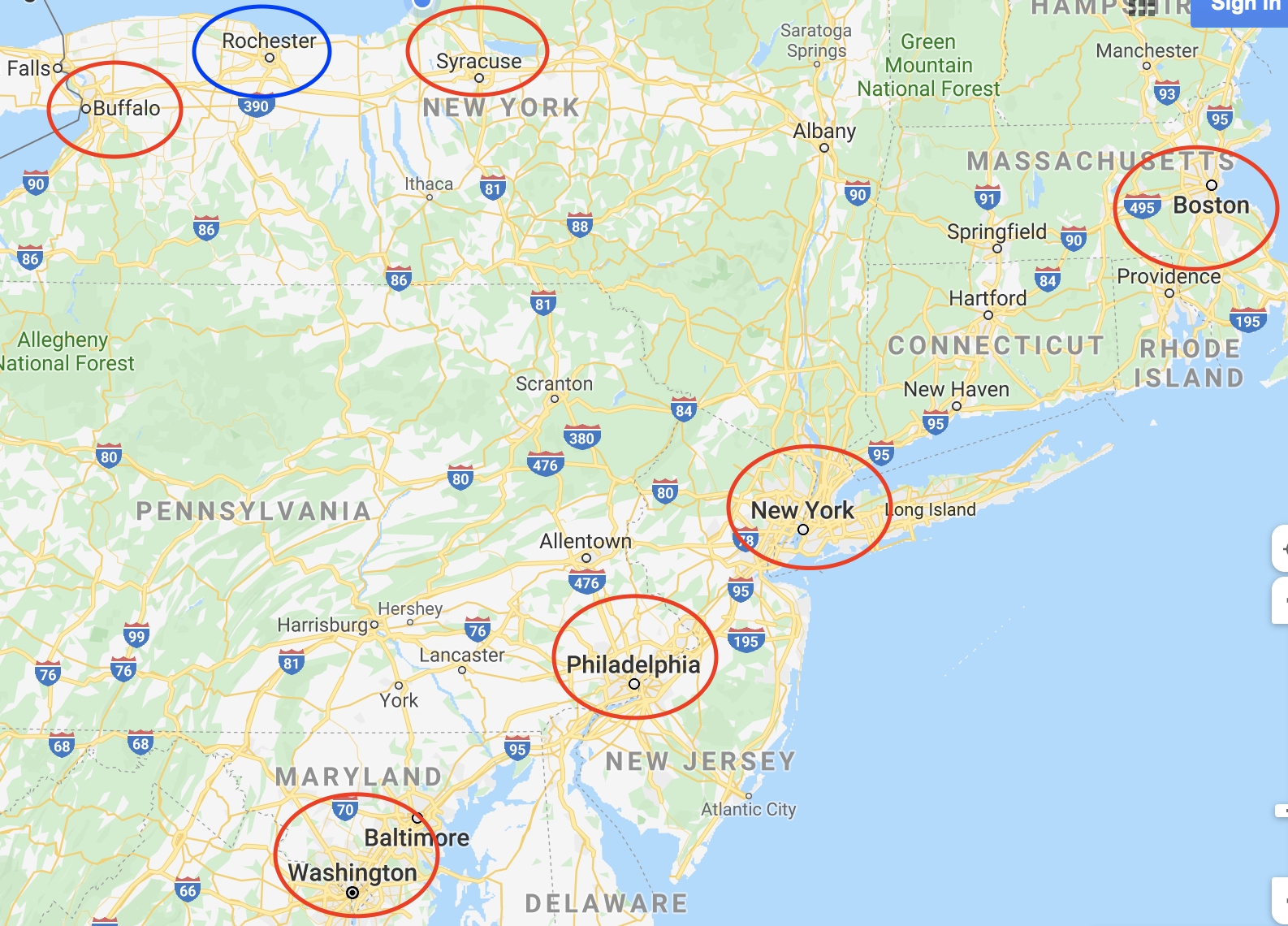
Kristin Gillibrand, U.S. Senator of New York
"It is with great pleasure that I send greetings to each of you attending the GENIUS Olympiad. Our future relies on this generation of young students committed to the study of global environmental issues. The multidisciplinary approach of this program enables students to be creative and use ingenuity to solve many of these environmental problems. Your enthusiasm for a collective global consciousness is inspiring and greatly appreciated. I share your commitment and commend your hard work and dedication. Your efforts exemplify the positive contributions that hard-working individuals can make in their communities and you should be proud of your actions by continuing to lead with confidence. Your commitment to the future is indispensable to the growth of our nation. I want to extend my best wishes for a bright future filled with continued success."
Charles E. Schumer, U.S. Senator of New York
"It is my great honor to congratulate each of you on your acceptance into this remarkable international high school competition. Through hard work and determination, you have been selected to be this year’s competitors at the GENIUS Olympiad in areas such as science, art, creative writing, architectural design, and music. I am proud to commend you all for your efforts in attaining a global understanding of environmental issues and achieving sustainability. During your participation in the GENIUS Olympiad, you will come together for a week-long enriching experience, joining other students from around the globe. I encourage you to take in as much as you can and enjoy this very special time. Your passion and dedication to learning are truly commendable. You all stand out among your peers. I would also like to recognize and thank the volunteers from Terra Science and Education Foundation for their hard work in organizing this year’s competition. You are inspirations and role models to our youth who have come together to compete. I wish you all the best in your future endeavors."
Our preffered communication method is email.
You can also direct message us via Instagram or Facebook.
Email: [email protected]
Tel: (315) 422 2902
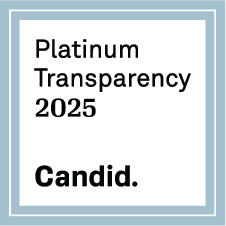
.png?h=aa5502b24eba4bd9170e8af839014eea)


